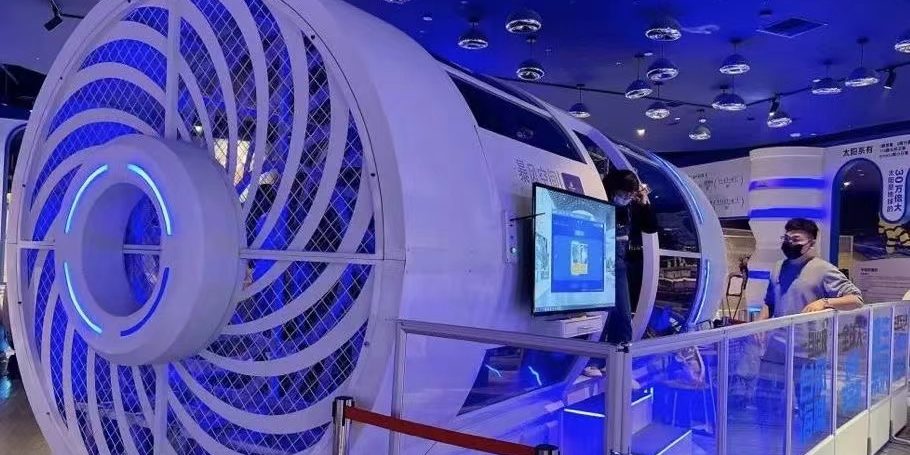Having a good understanding of ‘How the World Works’ is essential throughout the teaching and learning journey in IBPYP. Students’ daily learning includes not only acquiring theoretical knowledge in class, but also carrying out extracurricular practice. Field trip, one of the most featured practical activities at XLIS, which had been suspended due to the epidemic, finally restarted in this semester. On the 27th of February, P4 classes had their first field trip to the King’s Friend International Children’s Discovery Hall as part of our unit of inquiry. You may wonder what a field trip looks like and what it is for. A field trip gives the learners a chance to experience things in real life outside of what they learn at school. This way, students broaden their conceptual understanding of the theme they are learning about by gaining more practical knowledge by doing, seeing, touching, and feeling.
The day of the field trip has arrived, so what now?
Students gathered in the cafeteria and separated into their smaller groups. They met the group leaders and boarded the buses to take them to King’s Friend International Children’s Discovery.
When we got to King’s Friend International Children’s Discovery the students were led by guides around various exhibits that linked to our current unit of inquiry ‘How the World Works’ and the central idea, “Energy can be transformed, changed, and used in various ways.”
During our trip to the King’s Friend International Children’s Discovery Hall, students were guided and introduced to different activities. Under the leadership of the explorers in the exploration hall, students took the role of a detective and walked into a mysterious and magical world of exploration; science castle, a water world, exploring moment, and other eighteen exploration scenes, and by doing it, they learnt about the mysteries of sound, light, electricity, force, magnetism, water, nature, humanities, and much more. We believe that through these various and fantastic learning, students stimulated their interest in studying science, improve the scientific literacy skills and build a solid foundation for the development of innovative thinking approaches.
In the morning students experienced a simulation of a kitchen fire and were shown how to react and how to best exit the building. The interactive nature of the learning helped students to understand and by the end of the demonstration they were able to share what they learned about fire safety. Students then looked at how turbines could be used to generate electricity and were even able to generate electricity themselves. A lot of students said their favorite part of the day was the VR activity. They were able to experience a hurricane in VR, with real wind used to make it even more exciting.
After all the excitement of the morning students needed a break to have lunch. Everyone had lunch together, some students took their own lunch from home while others had the chicken sandwiches that the school provided.
After lunch the students attended a short demonstration which showed how chemical energy can be used to make a volcano and how soap can be used to create a small fire on our hands. Finally students had some time for free exploration in order to engage their curiosity about all the exhibits they had seen that day.
We were ready to go back to school at 13:10. When students arrived back in the classroom they filled in a reflection paper thinking about what they had done during the day and how that relates to what they are learning in our current unit.
The field trip managed our students to create a connection between the unit learning outcomes and their observations during the trip. They demonstrated a great understanding of the unit’s topic by showing conceptual understanding of the central idea. The different activities could attract student’s interests and they enjoyed the different activities. Students enjoyed watching a show about “Volcanoes”. They enjoyed various sections that show the energy transform by cycling and watching VR videos. Most of students were excited about the visual varieties. We encourage our students to explore and interact to gain new knowledge.
We encourage students to be reflective by expressing their thoughts and ideas about the trip. They could categorize the effective activities that attract their attention. This sheet helps the teacher to know their questions about the trip as well.
Click here for more details.
Authors:
Ahmed Hussien (P4A homeroom teacher)
Sandy Harrison (P4B homeroom teacher)
Syuzanna Gasparyan (P4C homeroom teacher)













